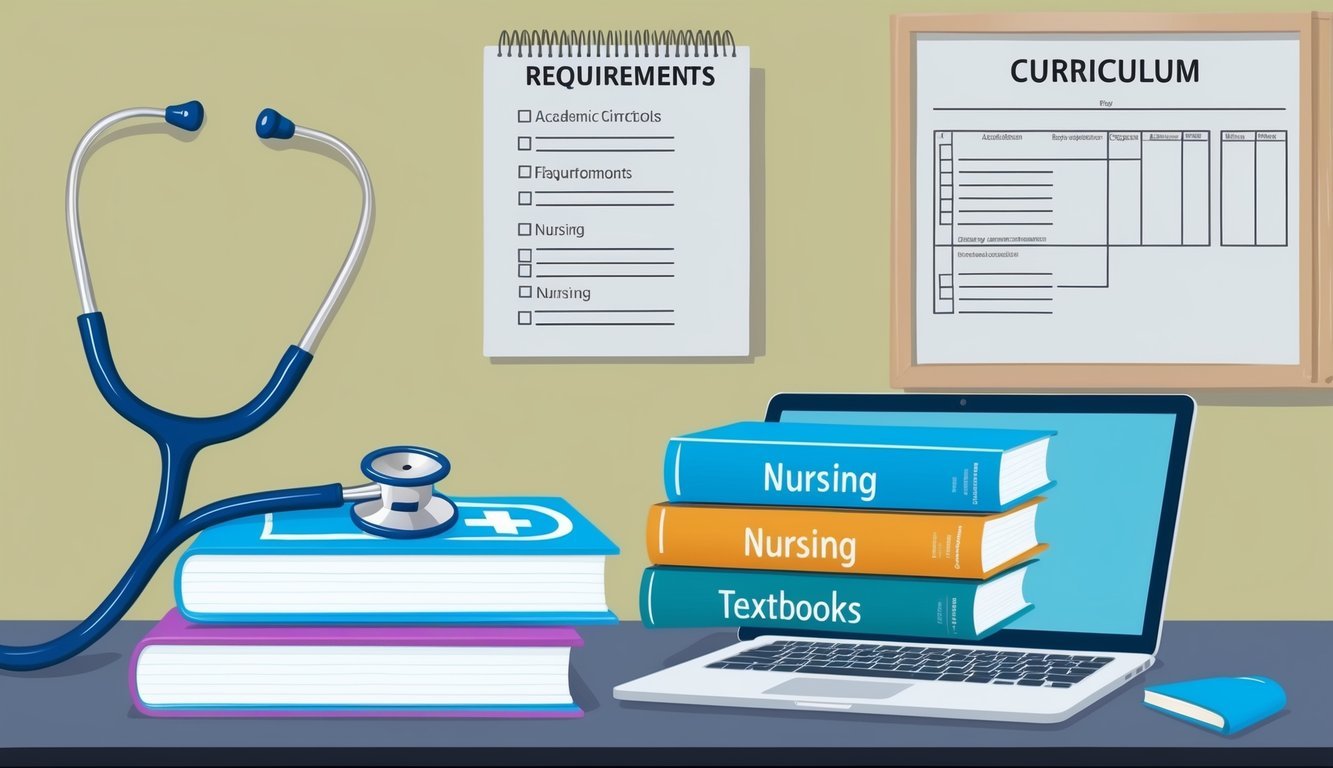The field of nursing is evolving, and pursuing a dual degree can open many doors for your career.
By earning a Master of Public Health (MPH) alongside a Master of Science in Nursing (MSN), you will gain valuable knowledge in both health care and public health. This combination prepares you for a diverse range of roles that can significantly impact community health and wellness.
In an MPH Nursing program, you will explore various topics, including health policy, epidemiology, and community health strategies.
The curriculum is designed to give you a solid foundation in public health while enhancing your clinical skills as a nurse.
Additionally, graduates often find rewarding career opportunities in public health agencies, hospitals, and nonprofit organizations.
By choosing this path, you not only expand your expertise but also position yourself as a leader who can address both individual and population health needs.
You will learn to work on initiatives that promote healthier communities, making your role crucial in today’s health care landscape.
Key Takeaways
- A dual degree in MPH Nursing enhances both health care and public health skills.
- Graduates often pursue careers in diverse settings like government and healthcare.
- The curriculum includes essential topics that prepare you for leadership roles.
Overview of MPH Nursing

This section explores what MPH nursing entails and the advantages of pursuing a dual degree in Nursing and Public Health.
You will gain insight into the definitions and benefits of this advanced educational path.
Defining MPH and MSN
The Master of Public Health (MPH) and Master of Science in Nursing (MSN) are two critical degrees that work together in the field of health.
The MPH focuses on public health practices, emphasizing community health, disease prevention, and health education.
This degree equips you with the skills to address health issues at a population level.
The MSN, on the other hand, hones in on clinical skills and advanced nursing practices.
It prepares you for roles such as nurse practitioner or nurse educator.
By integrating these two degrees, you can effectively bridge the gap between nursing care and public health initiatives.
For a comprehensive understanding of dual degree programs, visit NYU School of Global Public Health.
Benefits of Dual Degree Programs
Pursuing a dual degree in Nursing and Public Health offers multifaceted advantages.
First, you enhance your career prospects.
With both degrees, you can work in diverse settings, from hospitals to government agencies and non-profits.
Additionally, joint degree programs often shorten the time required to complete both degrees.
For instance, combined curriculum pathways can be completed in as little as three years.
Here are some benefits:
| Benefit | Description |
|---|---|
| Broader Career Options | Access to various roles in health care and community health. |
| Enhanced Skills | Gain expertise in both nursing practices and public health. |
| Increased Earning Potential | Dual qualifications can lead to higher salaries. |
Such programs enable you to take on leadership roles while making a significant impact on community health.
For more details, you can check resources like the Yale School of Public Health.
Curriculum and Academic Requirements

In an MPH Nursing program, understanding the curriculum and academic requirements is crucial.
The program typically combines core public health courses with specialized nursing education.
You’ll also engage in practical experiences, including thesis and fieldwork components.
Core MPH Courses
Core MPH courses provide the foundational knowledge needed in public health.
These courses often include subjects such as:
- Epidemiology: Understanding disease patterns and health issues in populations.
- Biostatistics: Applying statistical methods to analyze public health data.
- Health Policy and Management: Learning how policies affect public health systems.
These courses prepare you to address real-world health challenges effectively.
Schools like Harvard T.H. Chan School of Public Health emphasize a mix of theoretical knowledge and practical application, ensuring you grasp the complexities of public health.
MSN Specializations
Within the MPH Nursing framework, you’ll also explore various Master of Science in Nursing (MSN) specializations.
These can include areas like:
- Family Nurse Practitioner: Focused on providing comprehensive care to families.
- Nurse Midwifery: Concentrating on maternity care and women’s health.
Choosing a specialization allows you to tailor your education to your career goals.
This dual training enhances your skills, making you more competitive in both nursing and public health fields.
Integration of Nursing and Public Health Education
The integration of nursing and public health education is essential for holistic care.
Programs often encourage interdisciplinary studies where you learn to merge nursing practice with public health strategies.
This approach teaches you to evaluate health needs in communities, design interventions, and implement health promotion activities.
It emphasizes not only direct patient care but also community health initiatives, preparing you for more impactful roles in healthcare settings.
Thesis and Fieldwork Components
Thesis and fieldwork components are integral to your MPH Nursing education.
The thesis allows you to conduct in-depth research on a public health issue of your choice.
Your findings contribute to the field while enhancing your analytical skills.
Fieldwork experiences place you in real-world settings, where you apply what you’ve learned.
You may work alongside public health professionals in communities or healthcare organizations.
This practical experience is invaluable for building your confidence and preparing you for your career.
Career Opportunities and Certifications
Exploring the career opportunities within public health nursing reveals a variety of roles that contribute to community health.
Certifications enhance your qualifications, allowing you to specialize and advance in your field.
Here’s a deeper look into the different paths and necessary credentials.
Roles in Public Health Nursing
As a public health nurse, you can take on several key roles.
These positions include community health nurse, epidemiologist, and health educator.
Each role focuses on improving the health of populations through education and preventive care.
Your tasks might involve:
- Conducting health assessments
- Developing health programs
- Collaborating with community organizations
Public health nurses work in various settings, such as government agencies, non-profits, and healthcare facilities.
In each role, you engage with diverse populations to address healthcare needs and promote wellness.
Nurse Leadership and Administration
Nurse leadership in public health involves strategic decision-making and effective management.
You might oversee nursing staff, manage budgets, and ensure compliance with health policies.
This role requires strong leadership skills and knowledge of healthcare systems.
Becoming a nurse administrator could lead to positions such as a director of nursing or public health program manager.
You would be responsible for:
- Implementing health policies
- Leading health initiatives
- Evaluating programs for effectiveness
Leadership roles in nursing can influence health outcomes and drive changes in community health strategies.
National Certification and Licensure
Obtaining national certification is essential for advancing your nursing career.
The National Board of Public Health Examiners offers the Certified in Public Health (CPH) credential.
This certification demonstrates your expertise in public health practice.
To maintain certification, you will need to engage in continuing education and professional development.
Additionally, ensure your nursing license is current, as each state has its own licensing requirements.
Familiarize yourself with the National Council of State Boards of Nursing for guidelines related to licensure.
These credentials not only enhance your resume but also improve job prospects and earning potential.
Public health nursing is a vital field, and being well-certified can set you apart.
Admissions and Financial Considerations

When considering an MPH program for nursing professionals, understanding the admissions process and financial implications is essential.
This section covers the admission requirements, available financial aid options, and a breakdown of program costs.
Admission Requirements for MSN/MPH Programs
To enroll in an MSN/MPH program, you typically need a Bachelor of Science in Nursing (BSN) from an accredited institution.
A minimum GPA of 3.0 is often required.
You may also need to provide:
- Transcripts: Official records from all previous colleges.
- Resume: Documenting your work experience and qualifications.
- Letters of Recommendation: From professors or employers.
- Personal Statement: Highlighting your goals and motivation for pursuing dual degrees.
Some programs might require standardized test scores like the GRE, but many have made this optional.
Financial Aid and Scholarships
Various financial aid options are available for students in MPH programs.
These include federal and state aid, grants, and scholarships.
Some examples are:
- Federal Direct Loans: Offered to eligible students to cover educational costs.
- Scholarships: Many institutions provide scholarships based on merit or specific criteria. For instance, some offer awards of up to $5,000 a year for students committed to serving the Hispanic community.
It’s crucial to complete the Free Application for Federal Student Aid (FAFSA) to determine eligibility for federal aid.
You can explore additional scholarships at Masters in Public Health Scholarships.
Analysis of Program Cost
The cost of an MSN/MPH program can vary widely based on the institution and format (online vs. in-person).
In general, you might expect:
| Cost Category | Estimated Amount |
|---|---|
| Tuition | $30,000 – $80,000 |
| Books and Supplies | $1,000 – $2,000 |
| Fees | $500 – $1,000 |
| Miscellaneous Expenses | $2,000 – $5,000 |
For example, tuition alone for the Yale School of Public Health can reach approximately $79,942 for the entire program, depending on your specific course load.
Visit Yale School of Public Health Tuition for more details.
Understanding these factors can help you make informed financial decisions while pursuing your MPH degree.
Global and Community Impact
Understanding the global and community impact of nursing requires looking at key areas such as epidemiology, social determinants of health, and community health education programs.
Each of these areas plays an essential role in improving health outcomes and addressing health disparities.
Epidemiology and Global Health Initiatives
Epidemiology is vital in tracking health issues and guiding global health initiatives.
By studying disease patterns, you can identify outbreaks and allocate resources effectively.
Organizations like the World Health Organization (WHO) set global health targets based on epidemiological data.
You may also participate in initiatives aimed at combating infectious diseases, such as vaccination programs and health screenings.
These efforts are crucial in regions where diseases are prevalent.
Collaborating with local health workers enhances the effectiveness of these initiatives.
More information on global health initiatives can be found on the WHO website.
Social Determinants of Health
Social determinants of health greatly affect individual and community well-being.
Factors like socioeconomic status, education, and access to healthcare services impact health outcomes.
You need to consider these social factors when planning health programs.
For instance, limited access to healthy food and preventative care often causes higher rates of chronic illnesses in low-income communities.
By addressing these determinants, you can help reduce health disparities.
Engaging communities in discussions about their specific needs can lead to more effective health policies.
Community Health and Education Programs
Community health programs focus on promoting health and preventing diseases at the local level.
As a nurse, you can lead or participate in initiatives that provide education on nutrition, exercise, and mental health.
These programs empower individuals to take charge of their health.
Schools and community centers are often effective places for educational workshops.
Topics may include disease prevention and healthy lifestyle choices.
Collaborating with local organizations can extend your reach and enhance program effectiveness.
Engaging community members in designing these programs ensures they meet genuine needs and improve overall health outcomes.
Frequently Asked Questions
This section addresses key concerns for nurses considering a Master of Public Health (MPH) degree.
You will find specific information about eligibility requirements, career opportunities, salary impacts, and the differences between various nursing degrees.
What are the eligibility requirements for enrolling in an MPH program as a nurse?
To enroll in an MPH program, you typically need a bachelor’s degree in nursing or a related field.
Some programs may require you to have a valid nursing license.
Additionally, relevant work experience can be beneficial.
What career opportunities are available for nurses with an MPH degree?
Nurses with an MPH degree can pursue various roles such as public health nurse, epidemiologist, health educator, or policy analyst.
These positions often involve working in government agencies, non-profit organizations, or healthcare facilities.
How does an MPH degree influence a nurse’s salary?
An MPH degree can lead to higher earning potential.
For example, public health nurses generally earn more than those with only a BSN.
The average salary for public health nurse practitioners is around 121,250 annually, reflecting this advancement.
What are the differences between MSN and MPH degrees in terms of career impact for nurses?
An MSN (Master of Science in Nursing) focuses more on clinical practice and advanced nursing roles.
In contrast, an MPH emphasizes public health, policy, and community health initiatives.
Each degree shapes different career paths; MPH is often linked to broader community roles.
Can a nurse with a BSN degree directly pursue an MPH, and what are the prerequisites?
Yes, a nurse with a BSN can pursue an MPH directly.
Prerequisites often include coursework in statistics and health sciences.
Some programs may also ask for letters of recommendation or a personal statement.
What are the advantages of pursuing a DNP/MPH or MSN/MPH dual degree?
Pursuing a dual degree, such as DNP/MPH or MSN/MPH, offers comprehensive training in both clinical practice and public health.
This combination equips you with diverse skills.
It also enhances your career options and marketable expertise in various healthcare settings.

